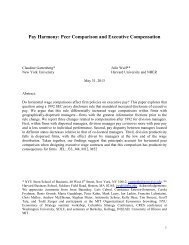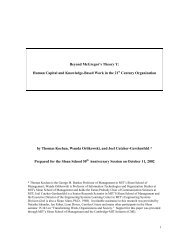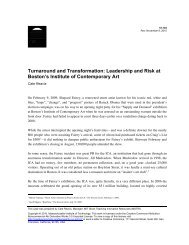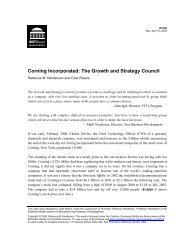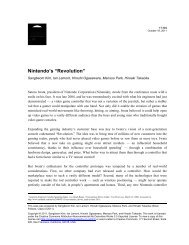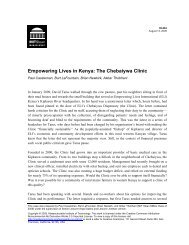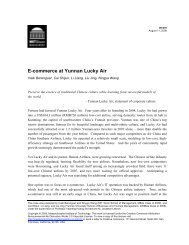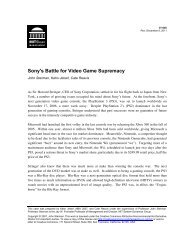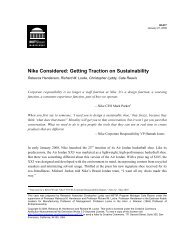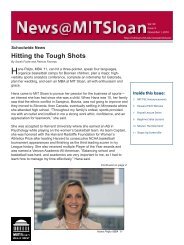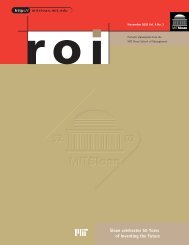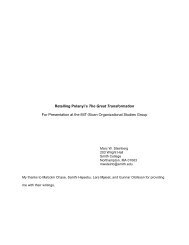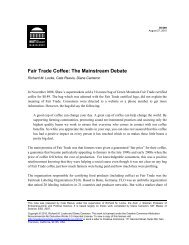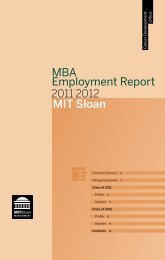Understanding earnings quality - MIT Sloan School of Management
Understanding earnings quality - MIT Sloan School of Management
Understanding earnings quality - MIT Sloan School of Management
Create successful ePaper yourself
Turn your PDF publications into a flip-book with our unique Google optimized e-Paper software.
5.4.3 Studies <strong>of</strong> other auditor characteristics<br />
Auditor effort: Direct studies <strong>of</strong> the effects <strong>of</strong> auditor effort are generally not possible because effort<br />
is unobservable, but experimental settings and surveys provide some evidence on auditor effort.<br />
Phillips (1999) suggests that auditors increase their effort when the risk <strong>of</strong> misstatements is high;<br />
accordingly, the presence <strong>of</strong> auditing can deter financial reporting irregularities (e.g., Schneider and<br />
Wilner, 1990). Hirst (1994) finds that auditing judgments reflect <strong>earnings</strong> management incentives<br />
from management buyout and bonus plans, which suggests that an auditor’s ability to detect errors<br />
varies with his effort to understand incentives. Nelson, Elliot, and Tarpley (2002) survey 253<br />
auditors from one <strong>of</strong> the Big-five audit firms who identify 515 experiences <strong>of</strong> attempted <strong>earnings</strong><br />
management. The surveyed auditors suggest that they do adjust for attempted <strong>earnings</strong> management,<br />
especially when attempted <strong>earnings</strong> management increases current-year <strong>earnings</strong>. Using a unique<br />
archival dataset, Caramanis and Lennox (2008) document a significant negative relation between<br />
audit hours worked, as a proxy for auditor effort, and discretionary accruals for a sample <strong>of</strong> audits<br />
from Greece. 60<br />
Industry expertise: Krishnan (2003) finds that the magnitude <strong>of</strong> discretionary accruals is lower for<br />
clients <strong>of</strong> auditors with industry expertise.<br />
Litigation risk: In an experiment, Barron, Pratt, and Stice (2001) find that auditors are more likely to<br />
adjust errors that overstate <strong>earnings</strong> than errors that understate <strong>earnings</strong>, and they are more likely to<br />
correct errors when litigation against the auditor <strong>of</strong> a competitor to the client firm for a similar<br />
misstatement resulted in a loss to the auditor. They conclude that auditors are more likely to correct<br />
60 However, an “in-basket” task experiment that asked managers to make discretionary accrual decisions and that varied<br />
the manager’s perceptions <strong>of</strong> internal and external auditor aggressiveness based on fabricated correspondence included in<br />
the experimental materials found no support for the hypothesis that internal and external auditors act as a deterrent to<br />
aggressive financial reporting (Uecker, Brief, and Kinney, 1981).<br />
105



